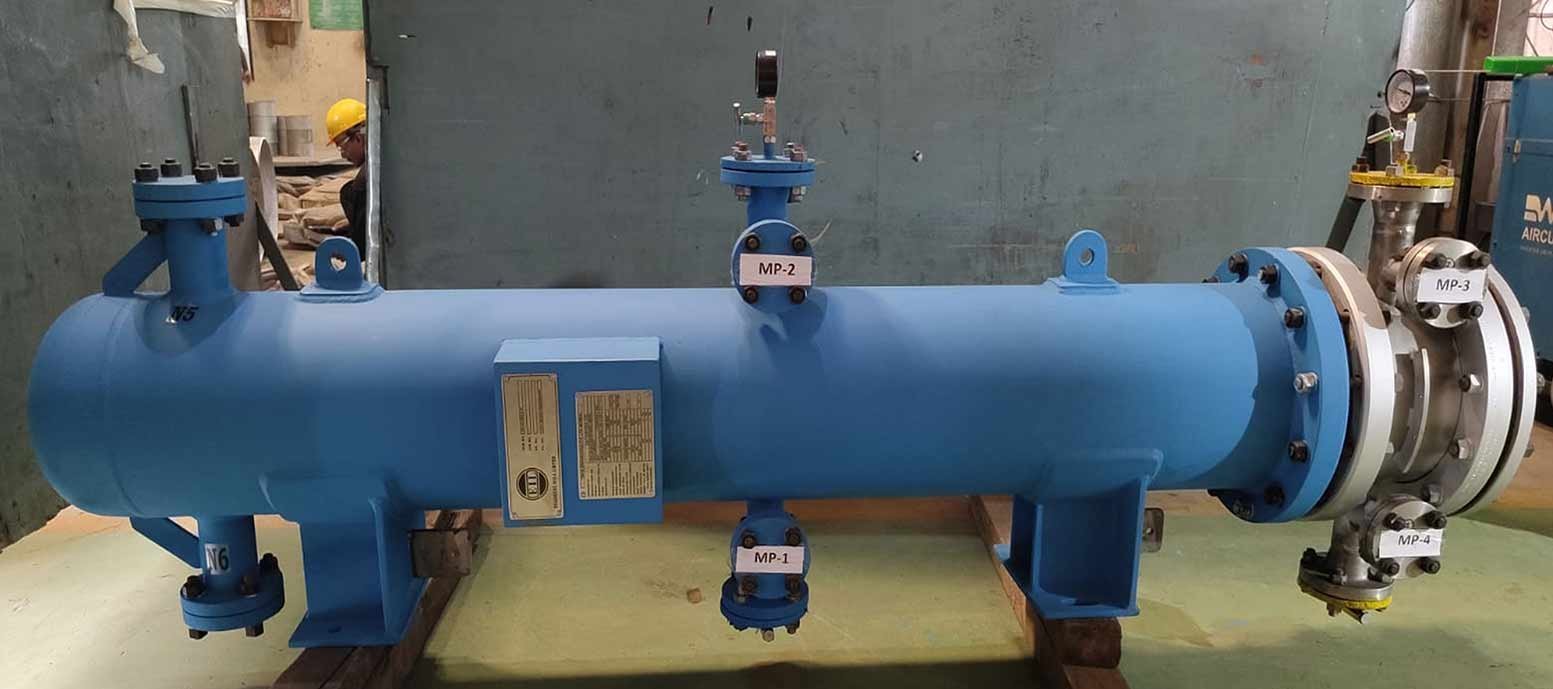Heat exchangers are crucial components in various industrial applications, enabling the transfer of heat between fluids to improve energy efficiency. Whether you are in the chemical, power generation, HVAC, or food processing industry, selecting the right heat exchanger can significantly impact your system’s overall performance. In this blog, we will explore the key factors to consider when choosing a heat exchanger, focusing on size, materials, and efficiency, and the role of heat exchanger manufacturers in providing optimal solutions.
1. Size: Determining the Right Fit for Your Application
The size of a heat exchanger is one of the most important factors to consider. A heat exchanger that is too large will lead to unnecessary costs, while one that is too small will not be able to meet the heat transfer requirements of your system, affecting its efficiency.
Considerations for Size:
- Flow Rate: Heat exchanger manufacturers design heat exchangers based on the required flow rate of fluids. Higher flow rates often require larger heat exchangers to ensure that sufficient heat is transferred without any loss in performance.
- Space Constraints: The space available within your system will also determine the size of the heat exchanger. For limited spaces, plate heat exchangers might be the best option, while a shell and tube heat exchanger could be ideal for larger applications.
- Thermal Load: The heat load, or the amount of heat to be transferred, will also influence the size. Manufacturers tailor their designs to ensure that the heat exchanger can efficiently handle the thermal load of your application.
Choosing the appropriate size requires balancing the necessary heat transfer capabilities with the available space and your system’s requirements.
2. Materials: Ensuring Durability and Performance
The materials used in the construction of heat exchangers are essential for their durability and efficient operation. Selecting the right material ensures that the heat exchanger can handle high temperatures, pressures, and potentially corrosive fluids without degrading.
Considerations for Materials:
- Corrosion Resistance: Fluids in many industrial applications can be corrosive, so heat exchanger manufacturers often use materials like stainless steel, titanium, and copper alloys to ensure longevity and durability.
- Temperature and Pressure Resistance: Materials must withstand the specific temperature and pressure conditions of your application. Carbon steel, Inconel, and alloy steel are often used in high-temperature environments.
- Thermal Conductivity: Materials with high thermal conductivity, such as copper, improve heat transfer efficiency. However, manufacturers also consider strength and corrosion resistance when selecting materials for specific applications.
Choosing the right material ensures the heat exchanger will perform well under the harsh conditions of your industry while also extending its lifespan.
3. Efficiency: Maximizing Heat Transfer and Reducing Operational Costs
Efficiency is a key factor when selecting a heat exchanger. The goal is to maximize the heat transfer between fluids while minimizing energy consumption. Efficient heat exchangers help reduce operational costs and improve overall system performance.
Considerations for Efficiency:
- Heat Transfer Area: The heat transfer surface area plays a significant role in the heat exchanger’s efficiency. Plate heat exchangers, for example, have a larger surface area and offer higher heat transfer capabilities, making them highly efficient in various applications.
- Fluid Velocity: The velocity of fluids passing through the heat exchanger affects the heat transfer rate. Higher velocities improve heat transfer but may increase pressure drop. Leading heat exchanger manufacturers optimize fluid velocities to maximize heat exchange without excessive energy loss.
- Fouling Resistance: Fouling is the buildup of particles or debris on heat exchanger surfaces, which can reduce efficiency. Manufacturers use advanced coatings and materials that resist fouling to improve long-term efficiency.
- Energy Recovery: Some heat exchanger manufacturers integrate energy recovery systems into their designs. Regenerative heat exchangers can recover waste heat from one fluid and use it to preheat another, significantly reducing energy consumption.
An efficient heat exchanger reduces energy usage, improves system performance, and lowers operational costs, making it a valuable investment for any industry.
4. Why Heat Exchanger Manufacturers Matter
Selecting the right heat exchanger manufacturer is as important as choosing the right heat exchanger. Reputable manufacturers offer customized solutions tailored to your specific application, ensuring that the unit will meet all your operational requirements. They provide a range of heat exchanger types, such as shell-and-tube, plate, air-cooled, and custom solutions, each designed to optimize heat transfer in different conditions.
What to Look for in Heat Exchanger Manufacturers:
- Expertise and Customization: Leading heat exchanger manufacturers have extensive knowledge and offer customized solutions to suit various industries and applications.
- Material Selection: The best manufacturers will provide materials suited for your system’s needs, including corrosion-resistant alloys and high-strength materials for high-pressure or high-temperature environments.
- Innovation and Technology: A reliable manufacturer uses cutting-edge technology to enhance the heat exchanger’s efficiency, including energy recovery systems and improved heat transfer designs.
- Global Reach and Support: Manufacturers with a global presence can offer support and service, including installation and maintenance, no matter where your system is located.
Choosing the right manufacturer ensures that you get a high-quality, efficient heat exchanger that meets the demands of your industry.
5. Conclusion
When selecting a heat exchanger for your industrial system, the key factors to consider are size, materials, and efficiency. By carefully evaluating your system’s needs, you can choose a heat exchanger that maximizes heat transfer, minimizes energy consumption, and ensures long-term performance. Additionally, partnering with experienced heat exchanger manufacturers who understand the unique requirements of your application will help you select the most suitable solution for your industry.
Whether you need a plate heat exchanger for compact space or a shell-and-tube heat exchanger for large-scale operations, choosing the right heat exchanger and manufacturer is crucial for maintaining efficiency and reducing operational costs.



